17 expert-approved foods for sleep to help tired parents get a better night's rest
If you're struggling to drop off at night, trying these foods for sleep might help...

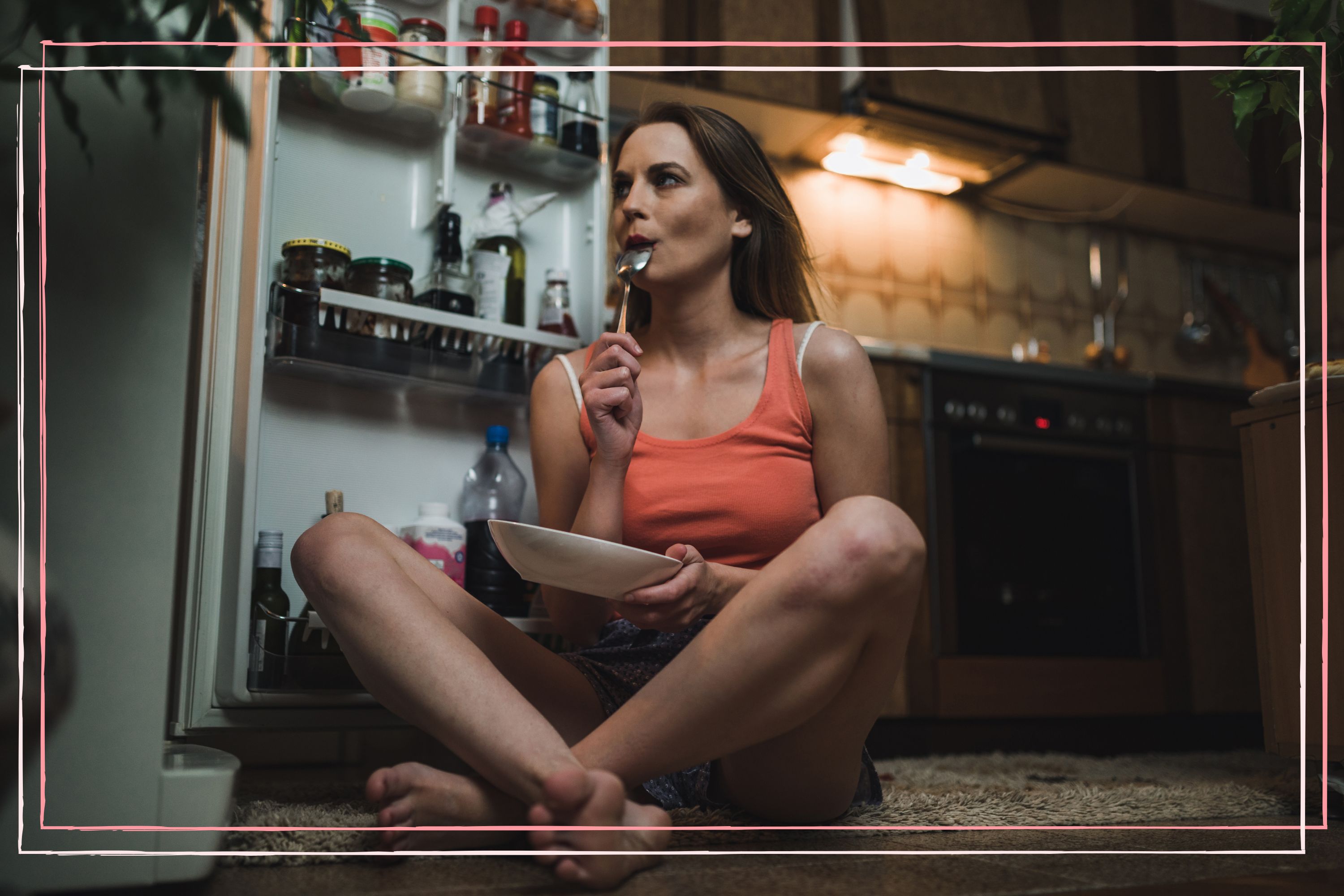
Parenting advice, hot topics, best buys and family finance tips delivered straight to your inbox.
You are now subscribed
Your newsletter sign-up was successful
Not being able to sleep at night is not only frustrating, but usually makes you grumpy and bad-tempered the next morning too. These foods for sleep could help...
As a busy parent, your own sleep is no longer a priority, and it probably feels like you're tired all the time and struggle to wake up in the morning. But a lack of sleep affects your body just the same as it does your child's, which is why it's important to try and squeeze plenty of it in when you can.
That being said, the time in the evening when the kids are in bed can feel like the only opportunity to catch up on all the other tasks you've been neglecting. Looking after a tiny human sometimes leaves little time in the day for looking after yourself, and many parents may find themself eating their main meal right before bedtime. But this can disrupt a good night's rest, which is why it can be helpful to know which foods are best for sleep.
17 foods for sleep, recommended by experts
1. Cherries
Cherries naturally boost the body's supply of melatonin, a hormone that is produced naturally in your body and aids sleep. And a study in the European Journal of Nutrition found that drinking tart cherry juice was found to result in significantly improved total sleep time, sleep efficiency and higher urinary melatonin concentrations.
Dr Deborah Lee from Dr Fox Online Pharmacy explains that tart cherries are best for improving sleep, adding: "These are bright red often rather sour-tasting cherries as opposed to those that are dark red and sweet."
She adds that tart cherries also contain high levels of antioxidants and have strong anti-inflammatory activity, and they also contain tryptophan and serotonin - both of which have been shown to improve quality of sleep.
And if you don't fancy the fuss of pitting a load of cherries before you head to bed, try cherry juice instead. In one study in the Journal of Medical Food, those who drank eight ounces of tart cherry juice twice a day were found to have a significant improvement in the severity of insomnia.
Parenting advice, hot topics, best buys and family finance tips delivered straight to your inbox.
2. Whole grains
Foods such as oats and brown rice are linked to an increase in the production of serotonin; a neurotransmitter that helps regulate sleep. Whole grains are also naturally rich in tryptophan, which is what your body needs to produce serotonin and melatonin.
Abbas Kanani, lead pharmacist at Chemist Click Online Pharmacy explains: "In the evening, the brain naturally converts serotonin into melatonin, the main sleep hormone. These foods also have a moderate impact on blood sugar levels and can promote a steadier release of energy throughout the night."
3. Kiwi fruit
Kiwi is also rich in serotonin, along with antioxidants - notably vitamins C and E - and folate (which is thought to improve restless leg syndrome), so it's a great fruit to eat before you hit the hay.
Dr Lee suggests, "Try eating two kiwi fruits before bedtime. In one 2011 Chinese study [in the Asia Pacific Journal of Clinical Nutrition], 24 participants ate two kiwi fruits one hour before bedtime for four weeks. At the end of the study, there were significant improvements in the Pittsburgh sleep index – including total time asleep, improved sleep latency (falling asleep more quickly)."
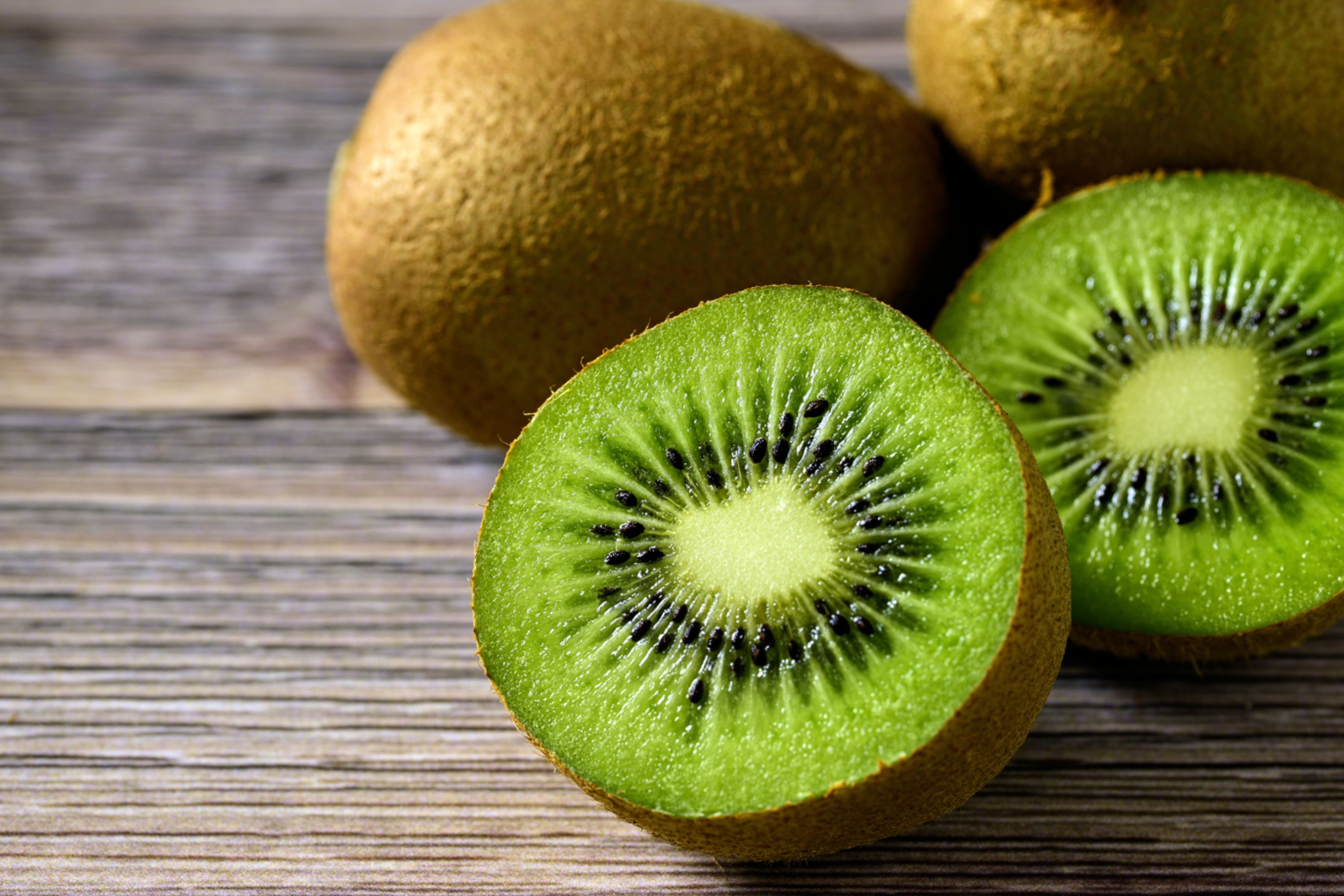
4. Coconut water
Coconut water has long been on the health food radar for its nutritional benefits, and it could be the answer to your sleep problems too!
"Coconut water is an excellent source of 'electrolyte' minerals: potassium, calcium, magnesium, phosphorous and sodium," explains nutritional therapist Cassandra Barnes. "Balanced levels of these minerals are necessary to maintain normal muscle action, nerve function and hydration in our body. Deficiencies or imbalances may cause cramping and restless legs at night, and therefore disturbed sleep."
Try drinking coconut water in the evening, an hour or two before you head to bed. "Coconut water products from young green coconuts are thought to be the best," Cassandra adds.
5. Bananas
We know bananas are good for us, but we bet you hadn't thought about eating the peel until now. That's right, banana peel contains tryptophan and magnesium, so it could help you sleep.
Don't worry - you don't have to chew through the peel to feel the benefits. Try making a banana peel tea instead by simply boiling the peel in water for around 10 minutes and drinking the liquid once it's cooled.
Failing that, ordinary bananas may help you sleep too. Dr Lee says: "There is little research to substantiate that bananas can help sleep, however, sleep experts think this may indeed be the case."
She goes on to explain: "Magnesium supplementation has been shown to improve sleep onset latency, total sleep time, sleep efficiency, and insomnia symptoms." Meanwhile, "Low levels of potassium at night can result in painful leg cramps that wake people from sleep. Just one banana contains between 12%-16% of your daily potassium requirements".
6. Chicken noodle broth
Meats like beef, pork and shellfish, but particularly poultry like chicken and turkey, all contain a generous amount of our little amino-acid sleep friend, tryptophan. This may explain why it's so hard to stay awake after a Christmas dinner.
Nutritionist Rob Hobson, author of The Art of Sleeping explains that this tryptophan is then converted to melatonin at night which is the hormone that helps to regulate the sleep/wake cycle. "You can boost your uptake of tryptophan into the brain by teaming the broth with a carbohydrate food such as rice," he adds.
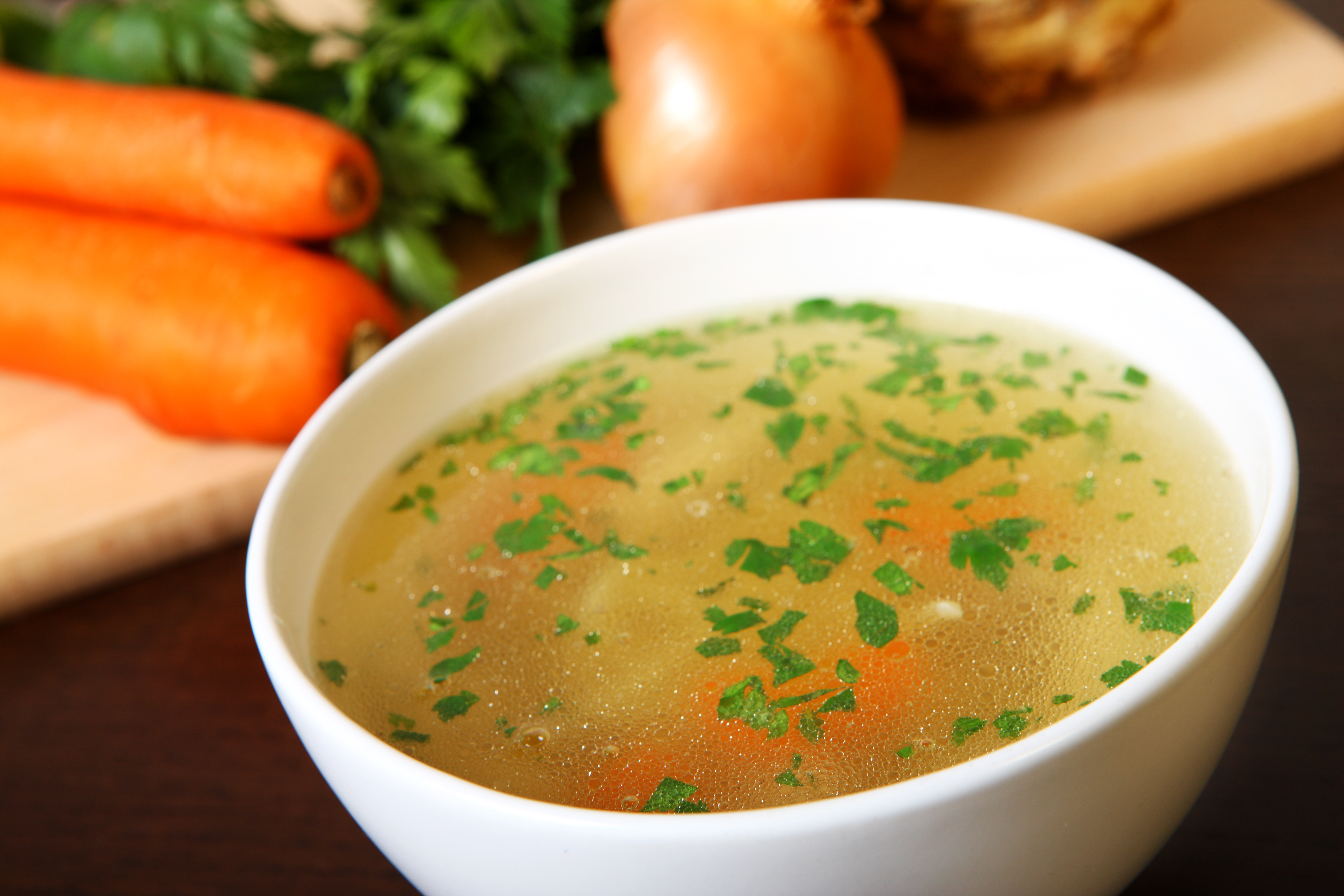
7. Honey
"While there is nothing in honey that helps with sleep, adding it to certain foods may help," says Rob, explaining that honey contains sugar which can assist with the uptake of tryptophan into the brain.
"You may want to add a little honey to a bowl of hot oats as a bedtime snack. This action even gives credence to the old wives' tale that warm milk and honey help you get to sleep."
8. Eggs
Eggs are rich in melatonin, and adding this hormone to your diet is thought by many researchers to aid sleep. Abbas Kanani adds: "Melatonin may also help children with certain conditions that disrupt sleep including asthma, dermatitis, attention-deficit hyperactivity disorder (ADHD), and autism spectrum disorder (ASD)." So eggs could help get the kids to sleep better too!
Scrambled egg made with milk is good for a simple and light evening meal. Plus, it's loaded with vitamin B6 and calcium which is used to convert tryptophan into melatonin.
9. Fish
Dr Lee explains that "various studies have shown that a high intake of oily fish is linked to better sleep".
In a 2016 study in the Journal of Sleep Medicine, sleep scores were highest in those with the highest intake of oily fish – nine or more servings per week – as assessed by the Pittsburgh Sleep Quality Index.
Dr Lee adds: "Oily fish include mackerel, herring, salmon, sardines, trout, and tuna, and current recommendations are to eat one portion of oily fish per week. It's important not to overdo it because oily fish contain traces of heavy metals such as mercury and lead."
And if you're not a fan of fish, consider taking supplements instead.
10. Herbal teas
Caffeinated tea is an absolute no-no, for pretty obvious reasons. In fact, there's not much worse you can do than have a tea or coffee before bed. But herbal teas are an exception to the rule.
Camomile tea, for example, has a natural sedative effect - as found in research by the National Institute of Child Health and Human Development.
In fact, a study in the Journal of Advanced Nursing investigated how drinking chamomile tea affected 80 women who had recently given birth and who experienced poor sleep quality. The researchers found that within two weeks they reported fewer sleep difficulty-related symptoms. However, after four weeks there was no difference in symptoms between the group that drank tea and the control group.
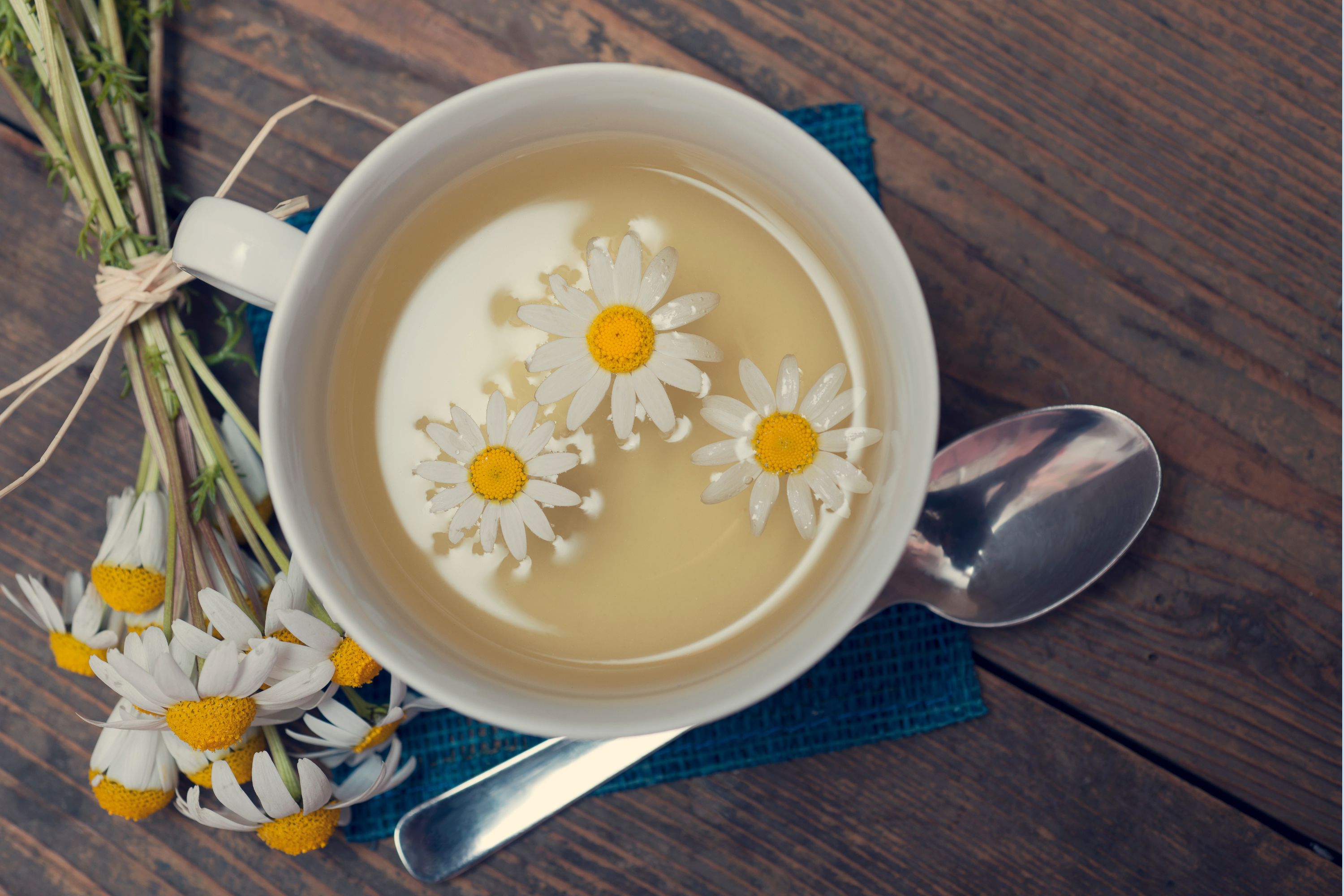
11. Milk
Drinking a warm glass of milk before bed is probably one of the oldest tricks in the book for nodding off to sleep, and it makes sense because it's full of compounds that help us sleep.
Abbas Kanani explains: "Milk contains the compounds tryptophan, calcium, and magnesium which can promote relaxation. There are suggestions that warm milk works best, however, there is no scientific evidence linking warm milk to specifically improving sleep quality or inducing sleep."
He adds, however: "Warm milk may have a calming effect on some people due to the relaxation that comes from sipping a warm beverage, however, it is the high tryptophan content that helps to aid a good night's sleep."
12. Horlicks
Malt drinks like Horlicks have been hailed as a night-time drink for years, and there's some science behind it too.
Dr Lee tells us: "Drinking 5 teaspoons of Horlicks mixed with 350ml of milk, 30 minutes before bedtime has been shown to result in fewer movements during sleep - especially between 4 and 7 am - than those who drank warm water or had nothing."
Horlicks contains a host of ingredients that may aid sleep, including wheat and malt barley – both complex carbohydrates – along with 14 vitamins and minerals, including vitamin D and several types of vitamin B.
It's also thought that the drink helps to stave off hunger overnight, therefore giving you a pleasant night, all round.
13. Leafy green vegetables
The lovely green leaves of foods such as spinach and kale contain tryptophan, that helpful sleep nutrient. Plus they contain vitamin B6, for a restful sleep.
Abbas Kanani also told us: "Leafy green vegetables are packed full of magnesium, which supports the body and brain to relax and therefore help you to fall asleep and stay asleep."
He adds: "Magnesium also plays a vital role in brain health, including stress and anxiety. By blocking stimulating neurotransmitters and binding to calm, restful receptors in the brain, magnesium can help parents with babies and young children to relax."
14. Almonds
Martin Seeley, Sleep Expert and CEO of MattressNextDay explains that almonds can aid sleep due to their rich magnesium content.
He says: "Magnesium is a mineral known for its muscle-relaxing properties, which can help calm the body and prepare it for sleep. Additionally, almonds are a good source of protein and healthy fats, which can help stabilise blood sugar levels throughout the night and prevent disruptions in sleep."
Martin adds that the combination of magnesium and other nutrients in almonds promotes relaxation, reduces muscle tension, and supports the production of melatonin.
15. Dark chocolate
That's right, your favourite evening snack could also help you sleep. Martin explained to us, "Dark chocolate helps aid sleep as it contains serotonin, a neurotransmitter that promotes relaxation and helps regulate sleep, while also providing magnesium which can help relax muscles and improve sleep quality."
Additionally, the antioxidants and flavanols found in dark chocolate can reduce stress levels and help reduce the time it takes to fall asleep.
16. Turkey
"Turkey helps aid sleep due to its high content of tryptophan," explains Martin, "An amino acid that plays a crucial role in the production of serotonin and melatonin, neurotransmitters that regulate sleep and promote feelings of relaxation and calmness."
Abbas Kanani further explains that, as well as turkey, chicken, seeds and legumes make great sources of tryptophan and therefore promote a better night's sleep.
17. Greek yoghurt
One study in the International Journal of Environmental Research and Public Health found that those who consume adequate amounts of milk and dairy products have better sleep habits.
This means that as well as a glass of milk before bed, you could try other dairy products to help you sleep too - such as yoghurt. Sleep expert Martin Seeley told us, "Greek yoghurt helps aid sleep as it contains calcium and tryptophan, both of which promote the production of melatonin, a hormone that regulates sleep, while also providing a good source of protein that can help stabilise blood sugar levels throughout the night."
We spoke to the following experts:

Having worked for many years in the NHS, mostly as Lead Clinician within an integrated Community Sexual Health Service, Dr Deborah Lee now works as a health and medical writer, with an emphasis on women's health, including medical content for Dr Fox pharmacy. She has published several books and remains passionate about all aspects of medicine and sexual health.

Abbas graduated as a pharmacist in 2013 and spent the first three years working for high street multiples, including a senior management role with the largest multinational pharmacy in the UK. In 2017, he qualified as an independent prescriber, spending time working in a primary care setting. He then assumed a consulting role within the NHS, providing advisory services on cost savings and clinical efficiencies. He has been within Chemist Click since the very start and continues to play an integral role within the team.

The founder and CEO of MattressNextDay, Martin Seeley has been in the sleep industry since the 80s. Having started out working with his Dad, mattresses are in Martin’s blood, and he loves providing customers with any help possible to get the best night’s sleep. A prominent figure in the bed world, Martin knows how to overcome any sleep-related problem, offering you the most expert advice and information on a range of health and lifestyle matters. He has been featured in renowned publications such as Men’s Health, Forbes and GQ, as well as ITV’s This Morning.
Continue reading
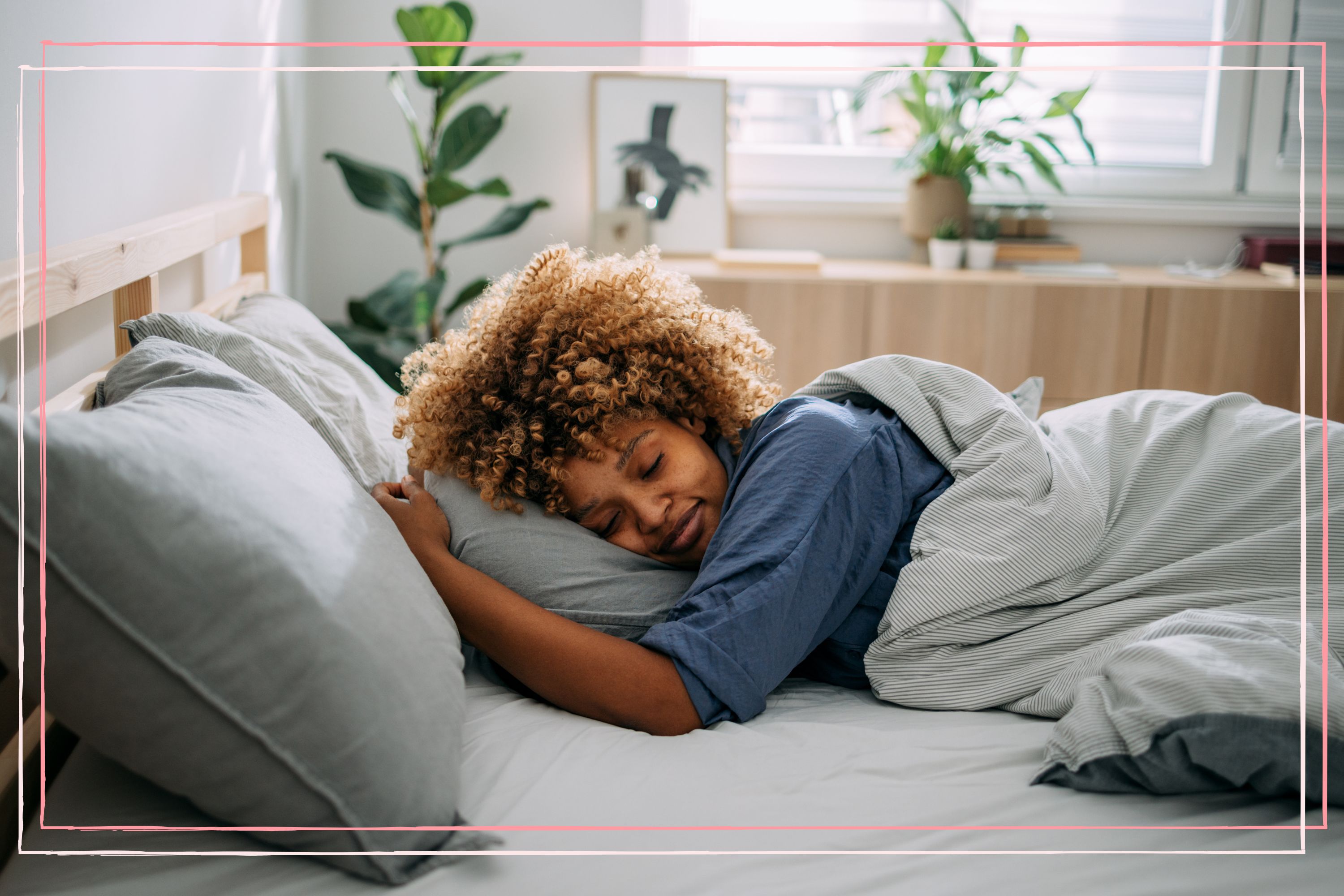
How much deep sleep do you need and 9 ways to get more of it as a new parent.
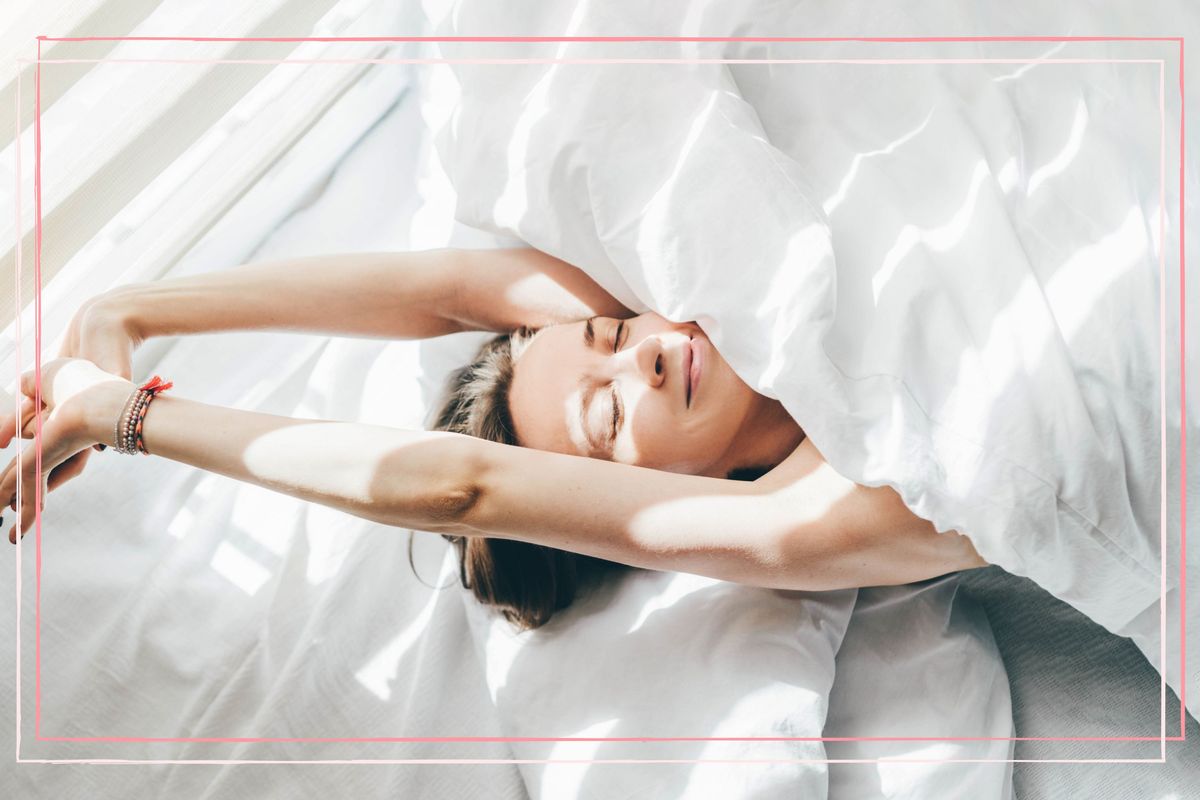
Do sleep affirmations work? Our experts reveal how this night time practice can benefit your wellbeing.
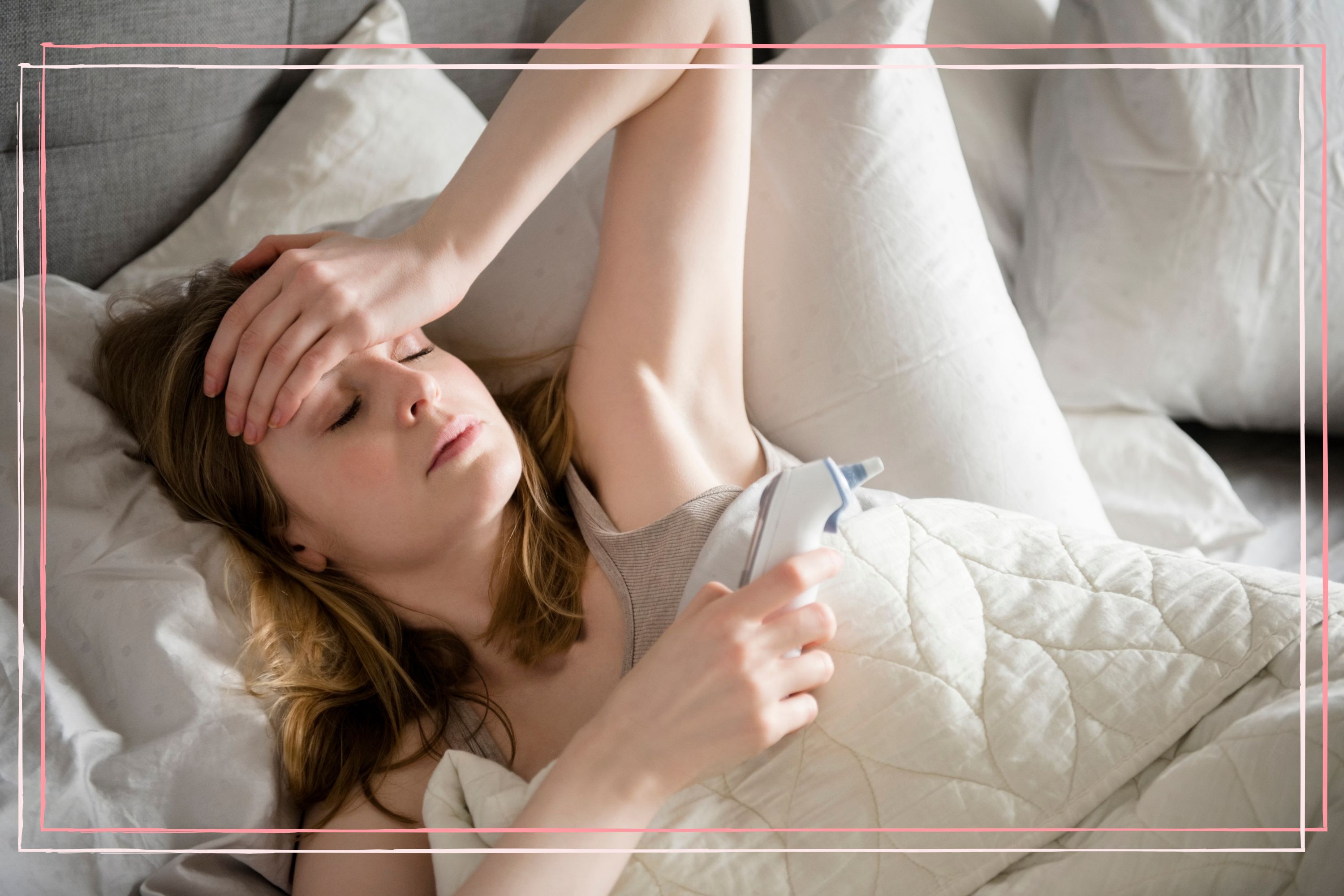
Find out why you might struggle with sweating at night, plus how to stop night sweats.

Ellie is GoodtoKnow’s Family News Editor and covers all the latest trends in the parenting world - from relationship advice and baby names to wellbeing and self-care ideas for busy mums. Ellie is also an NCTJ-qualified journalist and has a distinction in MA Magazine Journalism from Nottingham Trent University and a first-class degree in Journalism from Cardiff University. Previously, Ellie has worked with BBC Good Food, The Big Issue, and the Nottingham Post, as well as freelancing as an arts and entertainment writer alongside her studies. When she’s not got her nose in a book, you’ll probably find Ellie jogging around her local park, indulging in an insta-worthy restaurant, or watching Netflix’s newest true crime documentary.